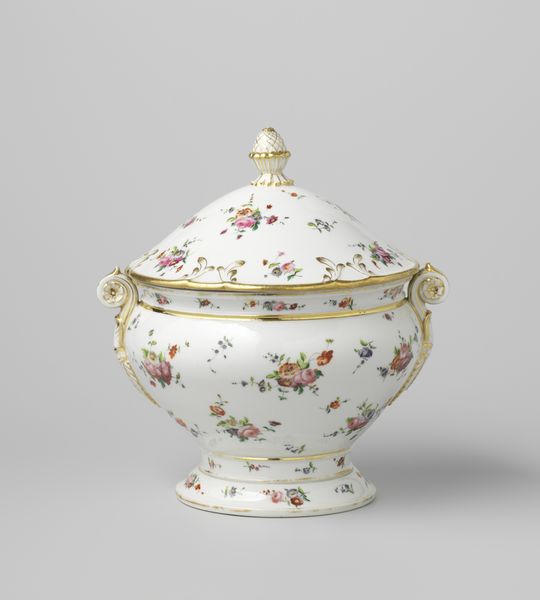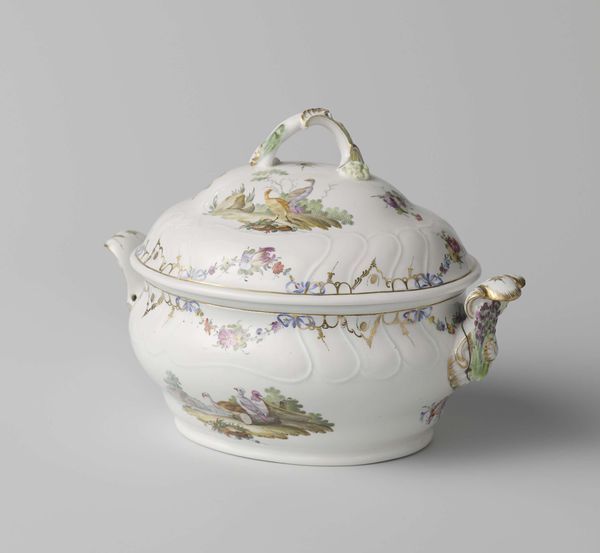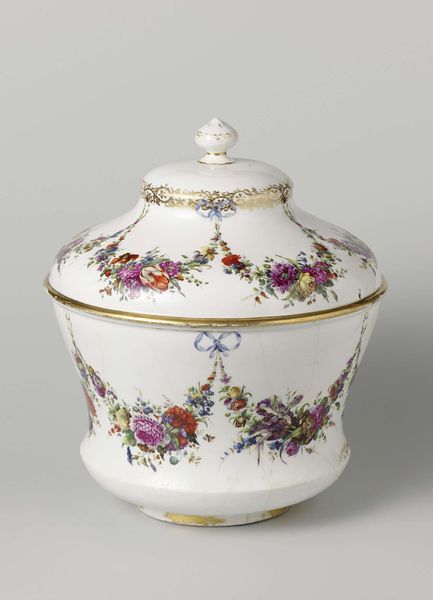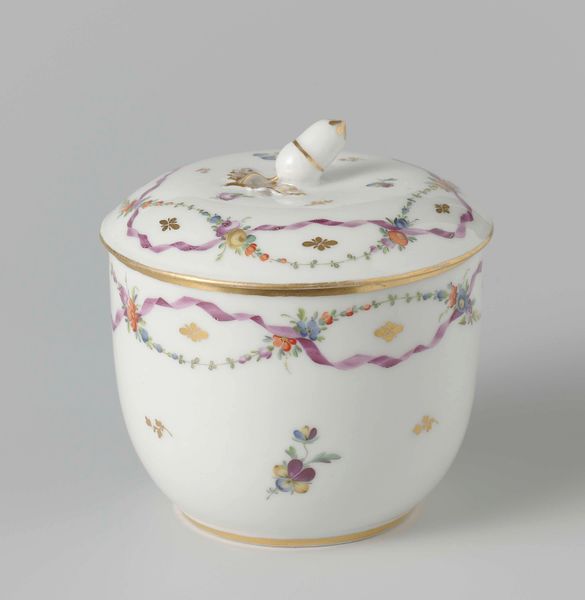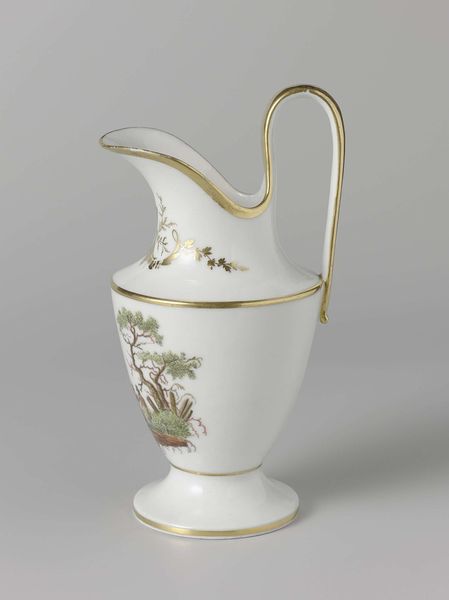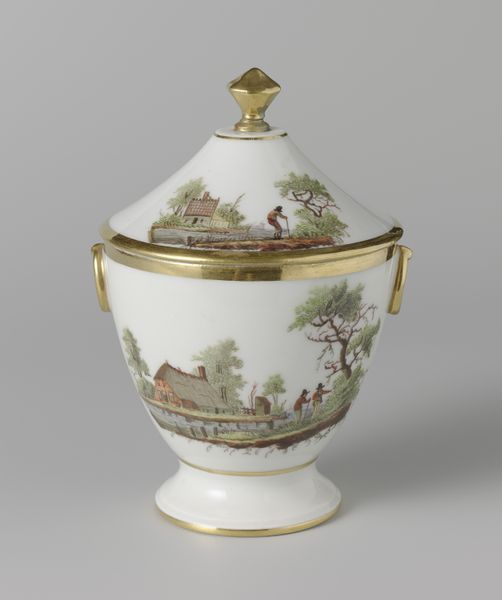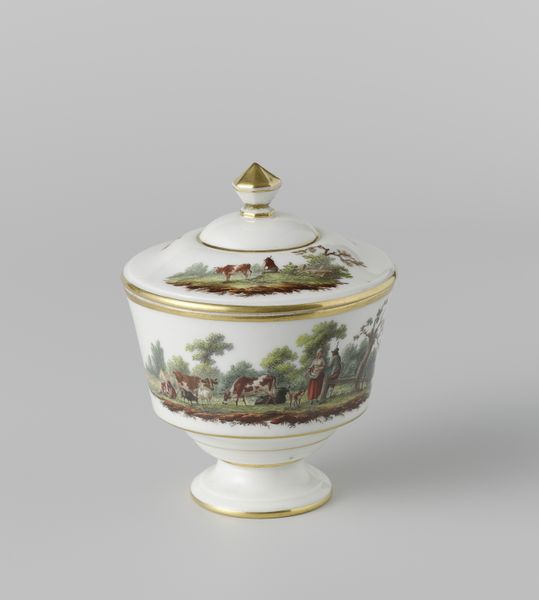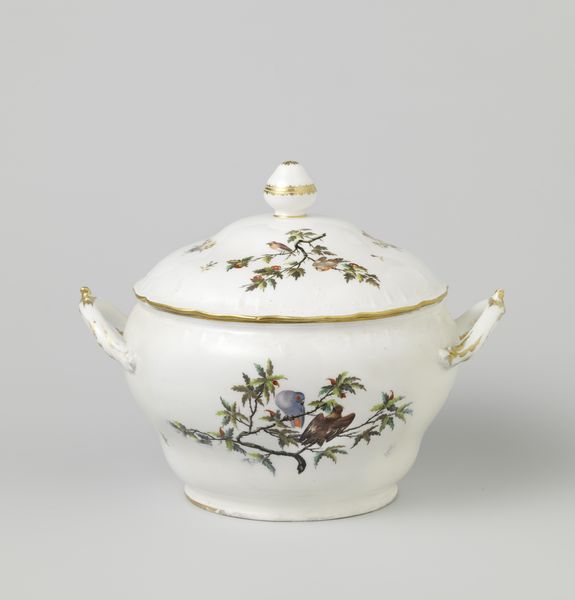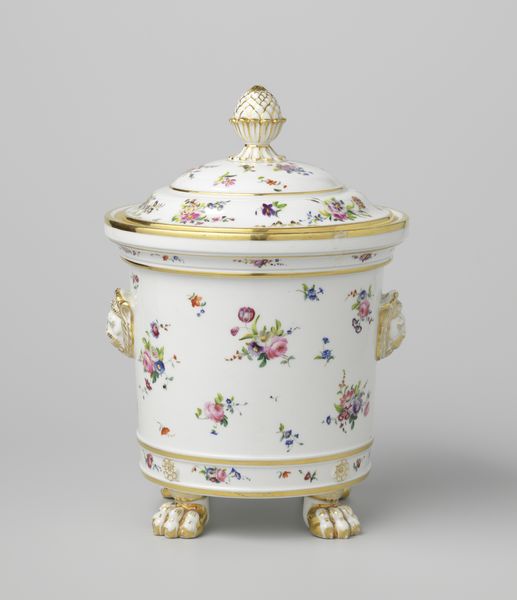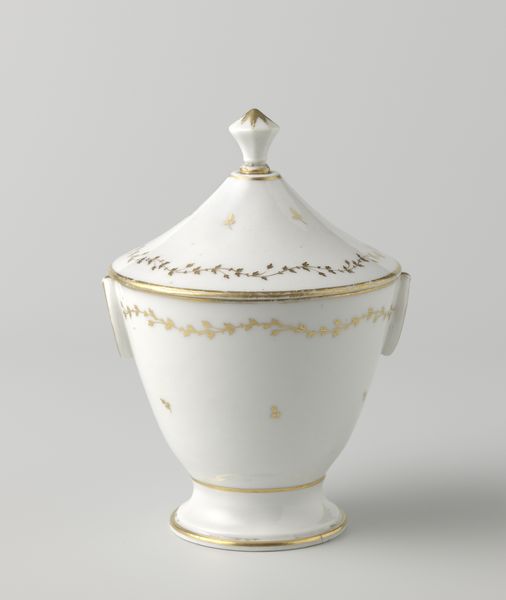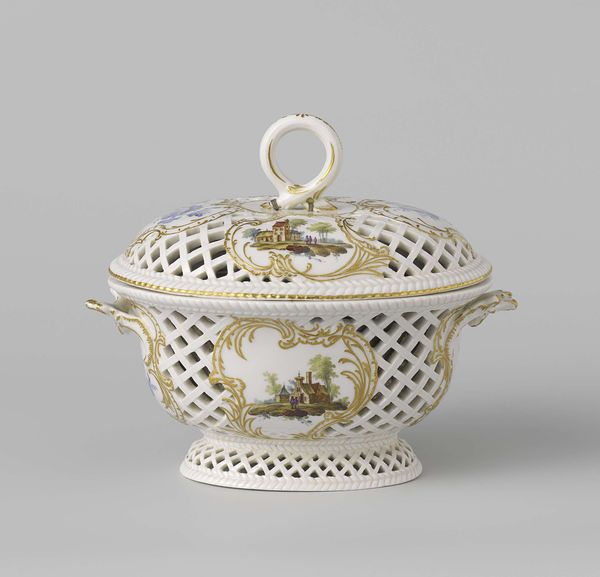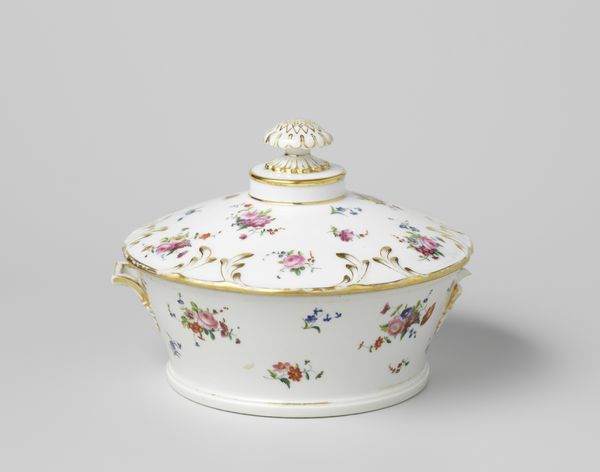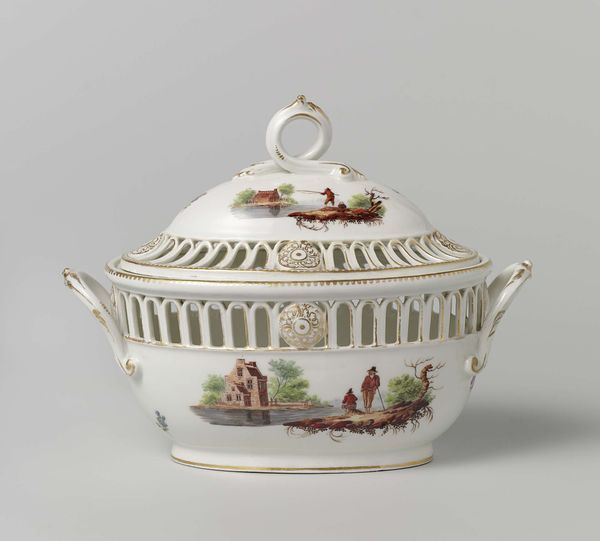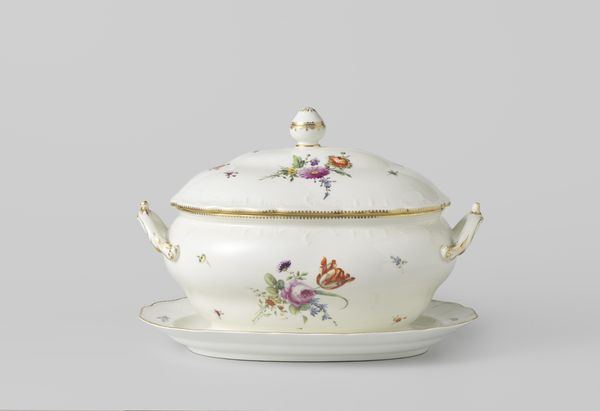
ceramic, porcelain
#
ceramic
#
porcelain
#
stoneware
#
ceramic
#
decorative-art
Dimensions: height 16.5 cm, width 12.2 cm, diameter 11.6 cm
Copyright: Rijks Museum: Open Domain
Editor: Here we have a porcelain sugar bowl, crafted around 1809-1814 by Koninklijke Porseleinfabriek Dommer & Co. The decorative details, like the baskets and ribbons, give it such a playful feel. How would you interpret the cultural significance of such a piece? Curator: This object speaks volumes about the social rituals of the time. The presence of a decorated sugar bowl suggests an emerging culture of leisure and conspicuous consumption amongst the Dutch elite. Consider how the very availability of sugar—once a luxury—had transformed, shaping new social customs around tea and coffee drinking. These weren't just beverages, they were social currency. Editor: So, it's less about the bowl itself and more about what it represents? Curator: Exactly. It's about understanding how objects like this functioned within a broader system of social display and economic power. Porcelain itself was a prized material, and its use signifies wealth and access to global trade routes controlled largely by colonial powers. Note how the hand-painted decoration emphasizes crafted skill, visually asserting its exclusive status. How might a piece like this have affected, or reflected, social status in the Netherlands? Editor: I guess owning such a finely made object would have immediately placed a family higher on the social ladder, reflecting good taste and affluence. It makes me think about modern-day luxury goods and the same principles still applying. Curator: Precisely! Studying this sugar bowl lets us see how material culture helped establish and reinforce social hierarchies of the early 19th century. Editor: That’s really insightful. I hadn't considered how a simple sugar bowl could tell us so much about social dynamics. Curator: Indeed, it shows us how everyday objects can act as powerful mirrors, reflecting a society's values and structures.
